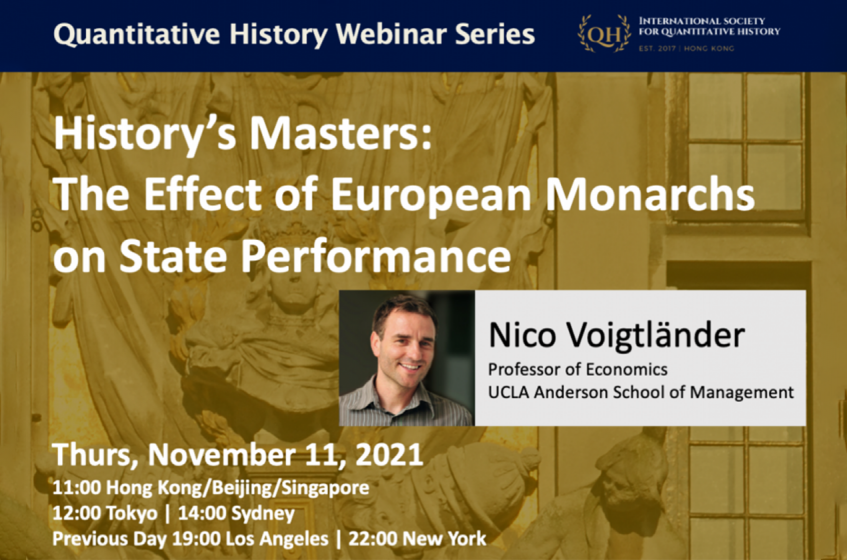
History’s Masters: The Effect of European Monarchs on State Performance
History’s Masters: The Effect of European Monarchs on State Performance
Nico Voigtländer of UCLA Anderson School of Management and his co-author create a novel reign-level dataset for European monarchs, covering all major European states between the 10th and 18th centuries. They first document a strong positive relationship between rulers’ intellectual ability and state-level outcomes. To address endogeneity issues, they exploit the facts that i) rulers were appointed according to primogeniture, independent of their ability, and ii) the wide-spread inbreeding among the ruling dynasties of Europe led over centuries to quasirandom variation in ruler ability. They code the degree of blood relationship between the parents of rulers. The ‘coefficient of inbreeding’ is a strong predictor of ruler ability, and the corresponding instrumental variable results imply that ruler ability had a sizeable effect on the performance of states and their borders. Their finding supports the view that ‘leaders made history,’ shaping the European map until its consolidation into nation states.
In this Quantitative History Webinar, Nico Voigtländer will explain how their study shows that rulers mattered only where their power was largely unconstrained. In reigns where parliaments checked the power of monarchs, ruler ability no longer affected their state’s performance. Thus, the strengthening of parliaments in Northern European states (where kin marriage of dynasties was particularly wide-spread) may have shielded them from the detrimental effects of inbreeding.
Nico’s co-author: Sebastian Ottinger (UCLA Anderson School of Management)
Live on Zoom on November 11, 2021
11:00 Hong Kong/Beijing/Singapore
12:00 Tokyo | 14:00 Sydney
Previous Day 19:00 Los Angeles | 22:00 New York
Calculate your local time
The Quantitative History Webinar Series, convened by Professor Zhiwu Chen and Dr. Chicheng Ma of The University of Hong Kong (HKU), aims to provide researchers, teachers and students with an online intellectual platform to keep up to date with the latest research in the field, promoting the dissemination of research findings and interdisciplinary use of quantitative methods in historical research. The Series is co-organized by the International Society for Quantitative History, HKU Business School, and the Asia Global Institute (AGI).
Conveners:
Professor Zhiwu Chen
Dr. Chicheng Ma







